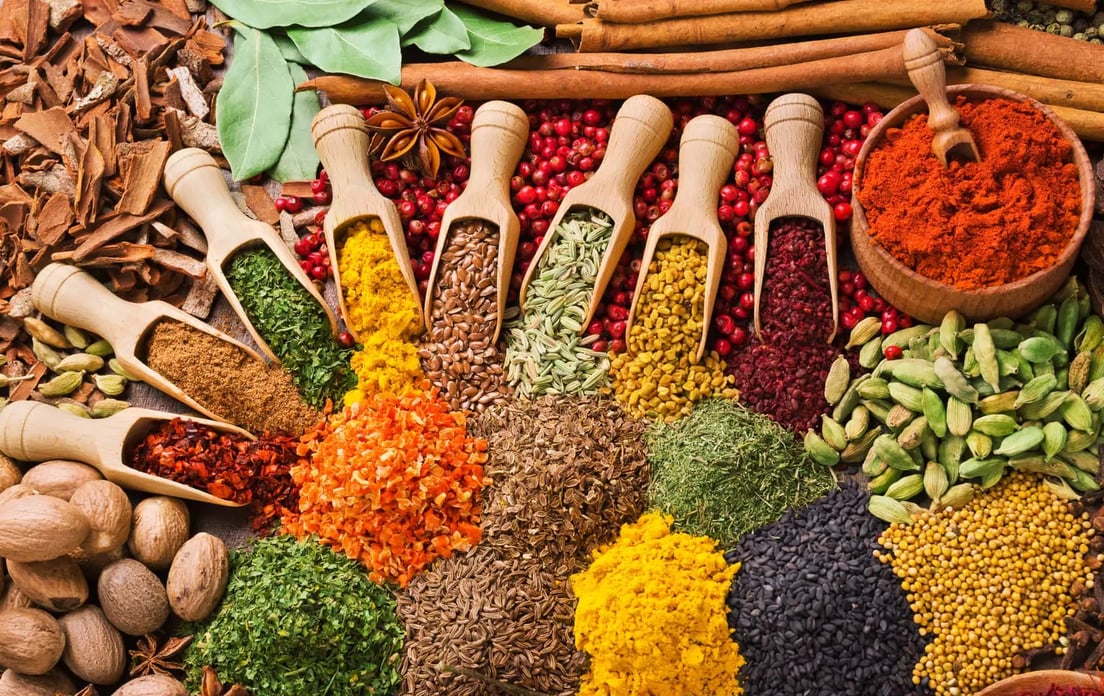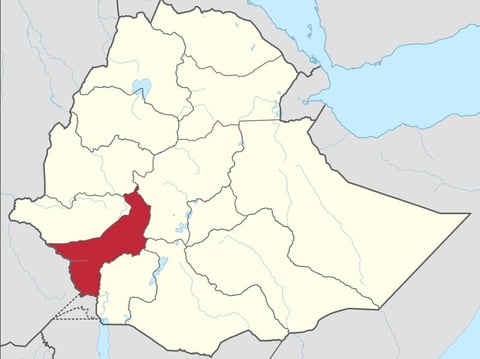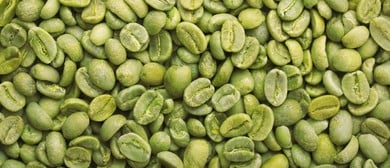Discover Corno d'Africa's Excellence
Corno d'Africa is an import and distribution company situated in the heart of Rome. It imports premium non-roasted Ethiopian arabica coffee also known as coffee Abyssinica directly from Ethiopia. In Italy it is the sole importer and wholesaler of Habesha beer supplying all Ethiopian and Eritrean restaurants. It is a company that believes in transparency and in building long-term relationships while delivering the highest quality products from Ethiopia and beyond.


Corno d'Africa also imports diverse food ingredients, spices, and liquors, ensuring the best supply chain practices to serve customers in Italy. Our organic Ethiopian coffee is sourced directly from farmers, ensuring quality and sustainability throughout the supply chain, providing the finest flavors for roasting companies in Italy.
The History and Origin of Coffee
Coffee was discovered and used for the first time in the south west region of Ethiopia called Keffa were it used to grown wild in forests. Even today it still grows there in large forests. The Keffa biosfere is also famous because it is the only rainforest in which lions have been documented. The particular properties of coffee only became known to man about 1000 years ago. An Ethiopian legend narrates that an Abyssinian goat herder called Kaldi noticed how excited his goats became after consuming coffee berries. He then decided to try some himself. He passed his discovery on to a monk, who transplanted the berries near his monastery, perfected his roasting and after grinding and brewing found out that coffee helped to keep monks awake and alert during their devotions. Since then the habit of drinking coffee spread into the Ethiopian social life. Coffee was used in meetings, celebrations, mourning and to ward off drowsiness. Today the coffee ceremony -where coffee is roasted, grounded and brewed and drunk enjoying the company of friends, relatives and neighbors- has become central to Ethiopian social life.
More genetically diverse strains of Coffee Arabica exist in Ethiopia than anywhere else in the world. This has led botanists and scientists to agree that Ethiopia is the origin, as well as the place of diversification and dissemination of the coffee plant.
Based in Rome, Corno d'Africa imports premium Arabica coffee along with diverse food ingredients, spices, and beverages, ensuring the best supply chain practices to serve Italy with exceptional products from Ethiopia.




Ethiopia Kaffa, the birthplace of coffee
Coffee production and diversification in Ethiopia
Ethiopian coffee is known as highland coffee because it is grown in the highland areas of the country, with normal growth rate to full maturity and been size. The diversified type of coffee Arabica in the country and its highly suitable environment have made Ethiopia attractive in the international market to gourmets desiring specialty and organic coffee. Ethiopian coffee is rich in acidity and body and is aromatic and sweet-flavored, with a winey and spicy flora or mocha taste. Because of it aromas and flavors, Ethiopian coffee is also used for blending and upgrading coffees produced in other countries.
Ethiopian coffee is thus among the best in the world and offers a wider choice to the worlds coffee roasters, who may select coffee of rich acidity and body, or coffee of low acidity with good body, or balanced and flavorful coffee. These different flavor profiles represent the unique potential of Ethiopian coffee production, which have not yet been fully exploited.
Apart from its aroma and flavor, Ethiopian coffee is produced without the use of artificial fertilizers and chemicals.
Coffee diversification in Ethiopia
Ethiopian Coffee production system
Ethiopian coffee is produced from five type of sources which are; Forest Coffee, Semi-forest Coffee, Garden Coffee, and Plantation Coffee. Each method has its own unique characteristics and produces a distinct type of coffee in flavor and aroma:
• Forest: this is coffee found in the wild, growing under thick, full covered natural forest trees. It is often where the diversity in breed is found due to disease resistance. It has a top quality aroma and flavor. It accounts for 10% of Ethiopia’s total coffee production.
• Semi-forest: is coffee from a producer secured forest land that has been selected for adequate sunlight and shade for coffee trees. Producers prepare the trees by removing weeds periodically and therefore yield higher production due to increased sun. It accounts for 35% of Ethiopia’s coffee production.
• Garden: Garden coffee is produced in small farm holdings, often at low densities, ranging from 1,000 to 1,800 trees per hectare. It is mostly fertilized with organic waste and is intercropped with other crops. It accounts for 50% of the total production.
• Plantation: This coffee is grown on commercial plantations owned mostly by state-owned enterprises and some private individuals. This represents only 5% of the total coffee production in Ethiopia


Coffee processing in Ethiopia
In the sun-dry or “natural” process, coffee cherries are dried whole. Producers lay the coffee cherries, skin and pulp, out to dry on the beds.
Over time, the skin and sticky juices of the cherries dries out in the sun. This process can take several days up to a few weeks, depending on the temperature and the intensity of the sun. Once the process is completed, sacks of dried cherries are taken to a hulling station for the removal of the husks.
Generally, as the result of prolonged and sun heat interaction with the cherry’s natural sugars, sun dried natural coffees have a sweet, fruity character with a creamy mouth feel. The best, more carefully cared for sun dried natural coffees can have intense berry flavors, tropical fruit aromas and chocolate undertones.
Natural process green coffee beans often have a yellowish or orange like tinge. This is a natural result of prolonged contact with the sugars as they “cook“ in the sunlight.
Naturally sun dried
Wet Processing
In the “washed” or “fully washed” style of processing, the husks of the coffee cherries are removed immediately after harvesting, usually on the same day the cherries are picked.
The “washed” designation refers to what happens to the coffee next. The mucilage coated beans are then fermented with water in large tanks. The process of fermentation breaks down the sugars in the mucilage and frees it from the parchment. Once fermentation is complete, the coffee is released from the fermentation tank and with the help of some flowing water it is flushed manually through long channels. This process of "agitation" frees up any remaining mucilage and separates it from the parchment. At The end of the channels, the coffee enters another tank where it is rinsed with fresh water. The result is wet coffee in parchment, free of the sticky mucilage.
Washed coffee tends to have a clarity of flavor and aroma that is often lacking in natural coffees. Many cuppers assert it is easier to taste the influence of soil and the varietal characteristics in washed coffees. Acidity comes up more clearly and the cup is generally cleaner. The cleanest, highest quality, high altitude washed coffees can have an intensely refreshing character.
Ethiopia produces great quantities of coffee in the major production styles which are naturally sun dried and washed
Ethiopian Coffee Specialties
Harar: This variety is produced in the Eastern high lands of Ethiopia. The bean is medium in size, with a greenish-yellowish color. It has medium acidity and full body and a distinctive mocha flavor. It is one of the highest premium coffees in the world.
Lekempt: this is produced in the region of Wolega in Western Ethiopia. It yields a medium–to-bold bean mainly known for its fruity taste. It has a greenish, brownish color, with good acidity and body. There are many roasters who put this flavor in their blends, but it can also be sold as an original gourmet or special origin flavor.
Limu: this is known for its spicy flavor and attracts many roasters, especially in Europe and USA. It has good acidity and body and the washed Limu is one of the premium coffees. It has a medium sized bean, and is greenish-bluish in color and mostly round in shape.
Sidamo: it has a medium sized bean, greenish-grayish in color. Sidamo washed coffee, known for its balanced taste and good flavor is called sweet coffee. It has fine acidity and good body and is produced in the southern part of the country. It is always blended for gourmet or specialty coffee.
Yirgacheffe: it has an intense floral flavor. The washed Yirgacheffe is one of the best highland grown coffees. It has fine acidity and rich body. Many roasters are attracted to its delicate fine flavor and are willing to pay a premium for it.
Corno d'Africa has the possibility to import coffees of other origins as well such as Jimma, Tepi, Bebeka, Gujj, Yeki, Godere, Anderacha, Kaffa which have all their own unique flavors and aroma. Corno d'Africa also offers the opportunity to export identity-preserved (IP) coffee to foreign buyers.




